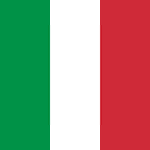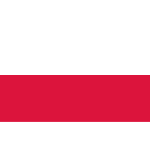
Thinking about media literacy
For centuries, literacy has referred to the ability to read and write. Today, we get most of our information through an interwoven system of media technologies. The ability to read many types of media has become an essential skill in the 21st Century. Media literacy is the ability to access, analyze, evaluate, and create media. After that we should be able to reflect and act. Media literate youth and adults are better able to understand the complex messages we receive from television, radio, Internet, newspapers, magazines, books, billboards, video games, music, and all other forms of media. Media literacy skills are included in the educational standards of every state—in language arts, social studies, health, science, and other subjects. Many educators have discovered that media literacy is an effective and engaging way to apply critical thinking skills to a wide range of issues.
According to Center for Media Literacy Media Literacy is a 21st century approach to education. It provides a framework to access, analyze, evaluate, create and participate with messages in a variety of forms — from print to video to the Internet. Media literacy builds an understanding of the role of media in society as well as essential skills of inquiry and self-expression necessary for citizens of a democracy.
We had an opportunity to take a journey in to the world of Media Literacy with prof. Renee Hobbs. She guided and thought us about magic media world through one week workshop(11.5.-15.5.) in Zagreb with teachers and librarians, along with professors and students from University of Zagreb's Department of Political Science and Journalism.
Professor Hobbs is one of the American leading authorities on digital and media literacy education. Through community and global service and as a researcher, teacher, advocate and media professional, Hobbs has worked to advance the quality of digital and media literacy education in the United States and around the world. She is Founder and Director of the Media Education Lab, whose mission is to improve the quality of media literacy education through research and community service.
During the workshop Telecentar held an interview with prof. Hobbs. Of course, we talked about diverse field of media literacy and why is important for all of us in Europe.
Comparing the current state of media literacy in the USA and Europe, we can be satisfied and encouraged to take more initiative for the improvement of media literacy in Europe. For us, it was interesting to hear how was media literacy developt in the USA and what does it represent today?
Discussion-based learning occurs when teachers create a respectful learning environment where students can feel simultaneously safe and challenged. Effective teachers support this by providing a balance of both support for student ideas and observations and challenging questions that provide insight on the processes of interpreting media messages. This blend of support and challenge helps deepen the quality of the classroom conversation. Therefore, we asked how to develop intellectual curiosity through digital and media literacy education?
Today families, schools and all community institutions share the responsibility for preparing young people for living and learning in a global culture that is increasingly connected through social media, multi-media and influenced by powerful images, words and sounds. Responsibility of schools is to provide media education. So, we asked prof. Hobbs how to attract school principels and encourage them to invest in media literacy education?
Rather than thinking about how we can protect our kids from the bad things on the Internet, we need to ensure our children are equipped with the tools they need to not only safely navigate the Internet, but to benefit from the good it offers. That requires us to think in a very different way than we are used to. It’s no longer only about protecting our kids; it’s about empowerment and lifelong education so that they can take full advantage of all the new media landscape offers. So like we teach our children about values like fairness, honesty and integrity we need to provide them with similar values for the online world. Interestingly many of these values are the same for both worlds.





